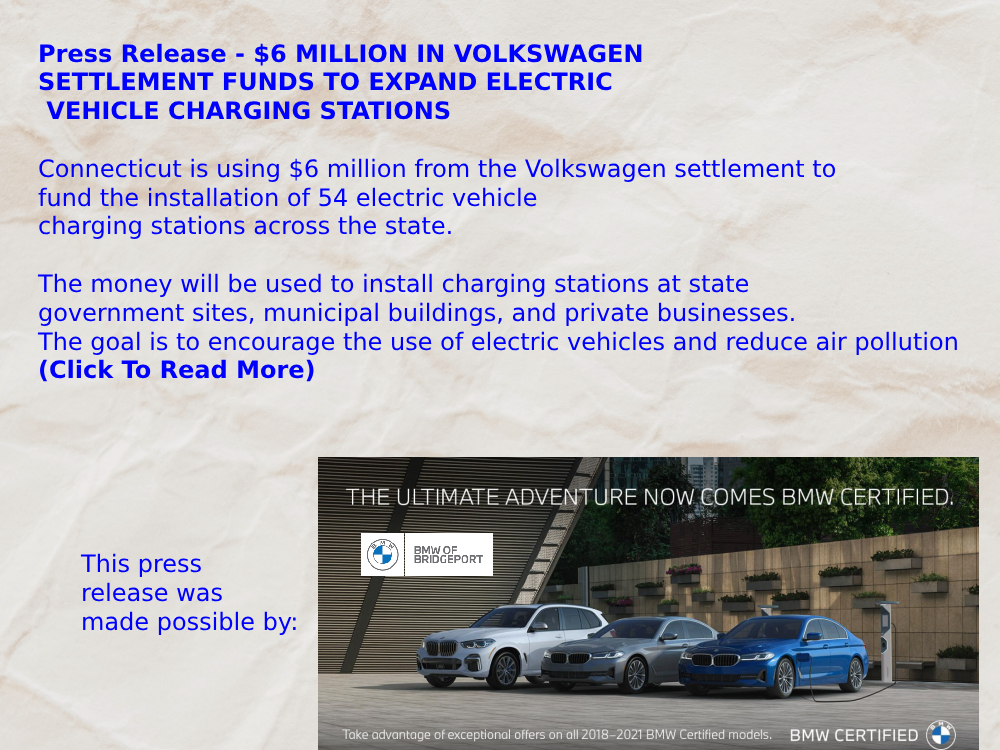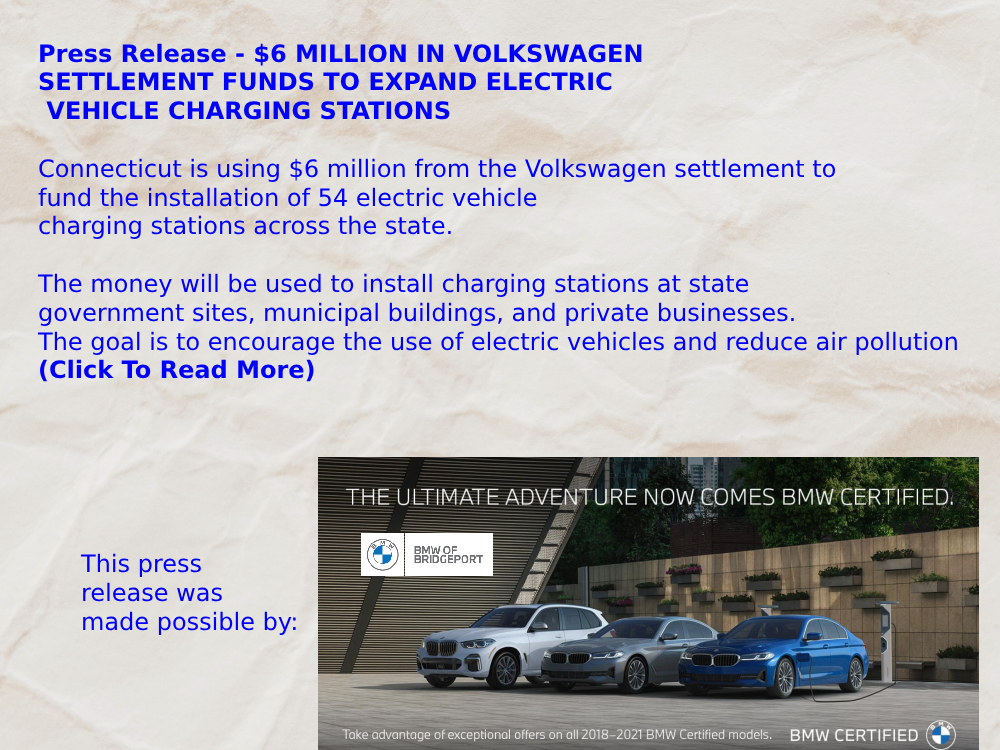(HARTFORD, CT) – Governor Ned Lamont today announced that his administration is releasing more than $6 million from the legal settlement in the Volkswagen Corporation (VW) emissions cheating scandal to fund 54 electric vehicle supply equipment (EVSE) projects across Connecticut.
Administered by the Connecticut Department of Energy and Environmental Protection, the state is making these funds available for the installation of EVSE to encourage the use of electric vehicles. Approximately $1.8 million is being awarded for EVSE deployment at state government sites to advance the sustainability goals of Governor Lamont’s Executive Order No. 1, with an additional $3.3 million awarded for municipal projects, ten of which are located in environmental justice communities. Additionally, nearly $1 million is being dedicated to support non-government, public EVSE.
“I’m really proud of the investments we’re making in Connecticut’s future while driving down air pollution from cars and trucks at the same time,” Governor Lamont said. “The projects we are announcing today will go a long way in helping to improve air quality and protect public health throughout Connecticut, while also providing economic development opportunities.”
“The transportation sector is responsible for approximately 70% of smog forming air pollution and 40% of climate pollution in Connecticut,” Department of Energy and Environmental Protection Commissioner Katie Dykes said. “Expanding the availability of charging infrastructure around the state is critical to scaling up EV adoption.”
The transportation sector is responsible for approximately Connecticut’s 70% of smog-forming nitrogen oxide (NOx) emissions and 40% of greenhouse gas (GHG) emissions. This funding from the VW settlement will leverage utility sponsored incentives to support the growing number of electric vehicles and move the state closer toward meeting its health-based air quality standards, as well as its long-term climate goals, while at the same time creating economic development opportunities.
In 2015, Volkswagen publicly admitted that it had deliberately installed a defeat device – software designed to cheat emissions tests and deceive federal and state regulators – in nearly 590,000 VW, Audi, and Porsche model year 2009 to 2016 diesel vehicles sold nationwide, with nearly 12,000 vehicles sold in Connecticut. As a result of a federal civil enforcement case against VW for violating the Clean Air Act, Connecticut was allocated more than $55.7 million to be distributed over a ten-year period for use toward offsetting the excess NOx pollution emitted in the state by these vehicles.
NOx combines with organic compounds in the air to the form ground level ozone, an air pollutant known to cause a number of adverse respiratory health effects, including significant decreases in lung function and inflammation of airways. Ozone forms when NOx and volatile organic compounds from combustion sources like motor vehicles react in strong sunlight. The Department of Energy and Environmental Protection continues to implement emission control programs to mitigate ozone’s negative impact on public health in Connecticut.
The fifty-five projects selected for funding under this funding cycle, over their lifetime, will cost-effectively reduce 2,760 tons of NOx emissions and almost 126,000 tons of GHGs from environmental justice communities and other areas of Connecticut that bear a disproportionate share of air pollution. The projects were selected from 87 submitted proposals for 163 projects at 181 individual sites (addresses) and included 24 state government projects, 50 municipal government projects, and 89 private (non-government) projects.
With the $6 million of this funding round, a total of $35 million of Connecticut’s VW settlement funding has been awarded to support more than 100 clean air projects statewide.


